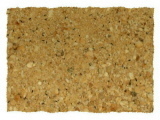Vitamins
and Minerals:

| Vitamins
and Minerals: | |||||
| Housing | |||||
| Feeding | |||||
| - Seeds | |||||
| - Fruit / Vegetables | |||||
| - Vitamins / Minerals | |||||
| - Others | |||||
| Breeding | |||||
| Disease | |||||
| Mutations | |||||
 | |||||
| |||||
| Vitamins: | Benefits: | Deficiency Problems: | Source: | ||
| Maintains growth, good eyesight, skin and bone health. | Mouth and throat lesions. Defects in eye functions. | Eggs, vegetable and fruit. | |||
| Aids important metabolic functions, overall growth, muscle texture and a healthy nervous system. | Leg paralysis, poor appetite, digestive problems and general weakness. | Cereal grains, green vegetables, wheat, peas and beans. | |||
| Aids important metabolic functions, skin, feather and nail quality. | Paralysis and culed toes. | Egg white, green vegetables and wheatgerm. | |||
| Needed for the metabolic processes, the nervous digestive systems and for the production of hormones. | Slow growth, poor feather quality and scaly dermatitis. | Grains and nuts. | |||
| Helps with the production of digestive juices, the development of red blood cells and antibodies and supports the operation of nervous system. | Lack of appetite and weight. Impaired reproduction. | Green vegetables and grains. | |||
| Necessary for normal metabolism. | Impaired egg hatchability, bone deformities and growth retardation. | Egg yolk. | |||
| Assists in important metabolic functions. | Impaired egg hatchability, bone deformities and skin diseaese. | Grains and nuts. | |||
| Aids metabolising fats and cholesterol and helping with the functioning of the nervous system, liver and kidneys | Depletion leads to kidney and liver ailments, fatty liver degeneration, slipped tendon and hock disease. | Green vegetables and egg yolk. | |||
| Aids the body in its use of proteins, the production of red blood cells. | Anaemia, loss of pigmentation and retarded body and feather growth. | Green vegetables and grains. | |||
| A must for cellular metabolism, a healthy digestive tract and proper functioning of the adrenal glands. | Retarded growth and feather development, skin ailments and diseases, liver damage and impaired egg hatchability. | Peanuts, green vegetables and grains. | |||
| Helps with connective formation, healing injuries and fighting infection and assists with the production of the red blood cells. | Depletion has no ill effect on most Psittacula Species. | Citrus fruits, tomatoes and raw green vegetables. | |||
| Birds can not utilise vitamin D2, therefore they must have vitamin D3 for proper bone formation and nervouse system. Aids blood clotting and enables calcium absorption. | Soft shelled eggs and egg binded. | Sunlight and egg yolk. | |||
| Increase fertility, blood ciculation and the regeneration tissue. An antioxidant and prevents the degeneration of fatty acids and vitamin A and vitamin D. | Decrease fertility, degenerative muscle disease and softening of the brain. | Wheatgerm, green vegetables, eggs beans and peanuts. | |||
| Liver function, blood clotting and general vitality | Poor blood clotting. | Green vegetables, egg yolk and beans. | |||
| Minerals: | |||||
| Essential for the development and growth of bones and muscles. Aids the proper functioning of the heart, muscles, blood and nervous system. | Poor bone growth and bone deformity, brittle and soft bones. Essential for egg production. | Cuttlefish bone, shell grit and calcium supplements. | |||
| Needed to maintain the correct alkaline, acid and fluid balance, produces stomach acids. | Imbalance of alkali acid, improper digestion and loss of body fluids. | Shell grit. | |||
| Iron is part of the haemoglobin in red blood cells that carries the oxygen, therefore is essential to the development and function of the healthy blood. | Anaemia, debilitated transportation of oxygen from the lungs to the tissue, muscle weakness and poor operation of the whole body. | Nuts, green vegetables and beans | |||
| Valuable for bone formation and proper metabolism, activates enzymes. | Impaired bone formation, the usage of carbohydrates and amino acids. | Grains, vegetables, fruits, nuts and beans. | |||
| Valuable for bone and blood formation and regulating metabolism by activating enzymes. | Bone disease, anaemia, poor body meatbolism and general weakness. | Green vegetables, grains and nuts. | |||
| Fundamental for important meatbolic functions. | Poor bone formation and bone disease. | Grains, nuts, eggs, seeds and vegetables. | |||
| Co-worker with vitamin E. | Poor tissue and muscle healing. | Wheatgerm. | |||
| Helps to regulate the body fluids and keep the alkali acid balance. | Subnormal amounts causes dehydration and an upset in the alkali acid ratio. | Root vegetables and eggs. | |||
| Necessary for normal metabolism and is a component of insulin. | Upsets body metabolism and causes diabetes mellitus through a decrease in insulin production. | Vegetables, wheatgerm and nuts. | |||